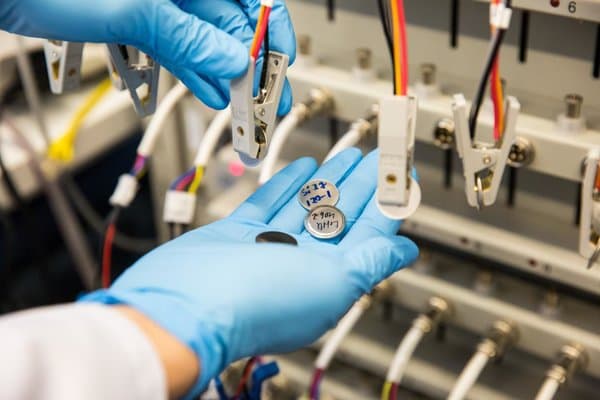Novel Fabrication Technique Devised For Organic Lithium Electrodes
Researchers from Finland's Aalto University have developed a fabrication method for electrochemically active thin films using Organic Lithium electrodes. This innovation succeeded in greatly boosting the efficiency of micro batteries. The team had prepared Lithium terepthalate, a newfound anode material for Lithium ion batteries, using the combined atomic/molecular (ALD/MLD) technique.
With continuous miniaturization in electronic devices, it has become imperative to use smaller and more compact energy storage devices, such as the ones devised . One possible way to enhance the energy density is to vastly increase the effective surface area by constructing the batteries on a three dimensional microstructure. However, the production of such a suitable material has been an uphill task. According to PhD student, Mikko Nisula at Aatlo University, the ALD method proved successful in fabricating the required 3D micro structured architecture, thereby paving the way for highly efficient micro batteries.

Researchers tested the material on coin cells
The deposition technique used by the team was found to be compatible with the elementary conditions desired for ALD type growth. Some of the key characteristics of the present technique were the sequential self saturated surface reactions and the ability of the deposited films to retain their crystalline nature across the entire temperature range(200 degrees Celsius to 280 degrees Celsius). An exceptional rate capability was achieved for the Li- terepthalate films without requiring extra conductive additives. A highly stable structure having an even higher capacity retention of 97% after 200 charge/discharge at 3.2 C was realised by depositing a protective LiPON layer atop the Li- terepthalate.
The complete report of the research was published in the latest issue of the' Nano Letters' journal.
Source: #-Link-Snipped-#
With continuous miniaturization in electronic devices, it has become imperative to use smaller and more compact energy storage devices, such as the ones devised . One possible way to enhance the energy density is to vastly increase the effective surface area by constructing the batteries on a three dimensional microstructure. However, the production of such a suitable material has been an uphill task. According to PhD student, Mikko Nisula at Aatlo University, the ALD method proved successful in fabricating the required 3D micro structured architecture, thereby paving the way for highly efficient micro batteries.

Researchers tested the material on coin cells
The complete report of the research was published in the latest issue of the' Nano Letters' journal.
Source: #-Link-Snipped-#
0
